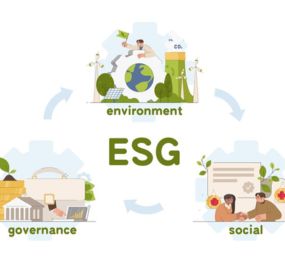In today's increasingly interconnected world, consumers are becoming more discerning and socially conscious. They are increasingly aware of the environmental and social impact of businesses and are more likely to support companies that demonstrate ethical and responsible practices. This trend is particularly pronounced in African markets, where there is a growing emphasis on sustainability and corporate social responsibility (CSR).
Environmental, social, and governance (ESG) factors have a significant impact on brand reputation in African markets. Consumers are more likely to trust and support companies that prioritize sustainability, social equity, and good governance. By integrating ESG principles into their business practices, African companies can build a strong brand reputation, foster customer loyalty, and attract socially conscious investors.
Benefits of ESG Practices for Brand Reputation
- Enhanced Trust and Credibility: Demonstrating a commitment to ESG principles can enhance a company's reputation and build trust with consumers, employees, and stakeholders.
- Increased Customer Loyalty: Consumers are more likely to be loyal to brands that align with their values and contribute positively to society.
- Improved Stakeholder Engagement: ESG practices can strengthen relationships with stakeholders, including employees, suppliers, and communities.
- Attracting Investors: Socially responsible investments are becoming increasingly popular, and companies with strong ESG credentials are more attractive to investors.
- Risk Mitigation: ESG practices can help identify and mitigate risks related to environmental and social factors, protecting the company's long-term sustainability.
Strategies for Integrating ESG into Brand Reputation
- Develop a Clear ESG Strategy: Define your company's ESG priorities and develop a clear strategy for implementing them.
- Measure and Report Performance: Track your ESG performance and report transparently to stakeholders.
- Engage with Stakeholders: Seek feedback from employees, customers, suppliers, and communities to understand their expectations and priorities.
- Align ESG with Business Strategy: Integrate ESG considerations into your core business operations and decision-making processes.
- Collaborate with Partners: Partner with other organizations to amplify your ESG efforts and create a broader impact.
By prioritizing ESG practices, African companies can build a strong brand reputation, foster trust with stakeholders, and contribute to a more sustainable and equitable future. In a world where consumers increasingly care about the social and environmental impact of businesses, ESG is no longer just a nice-to-have but a necessity for long-term success.
To register or learn more about the Forum please check here: https://www.leadventgrp.com/events/esg-and-climate-africa-summit/details
For more information and group participation, contact us: [email protected]
















